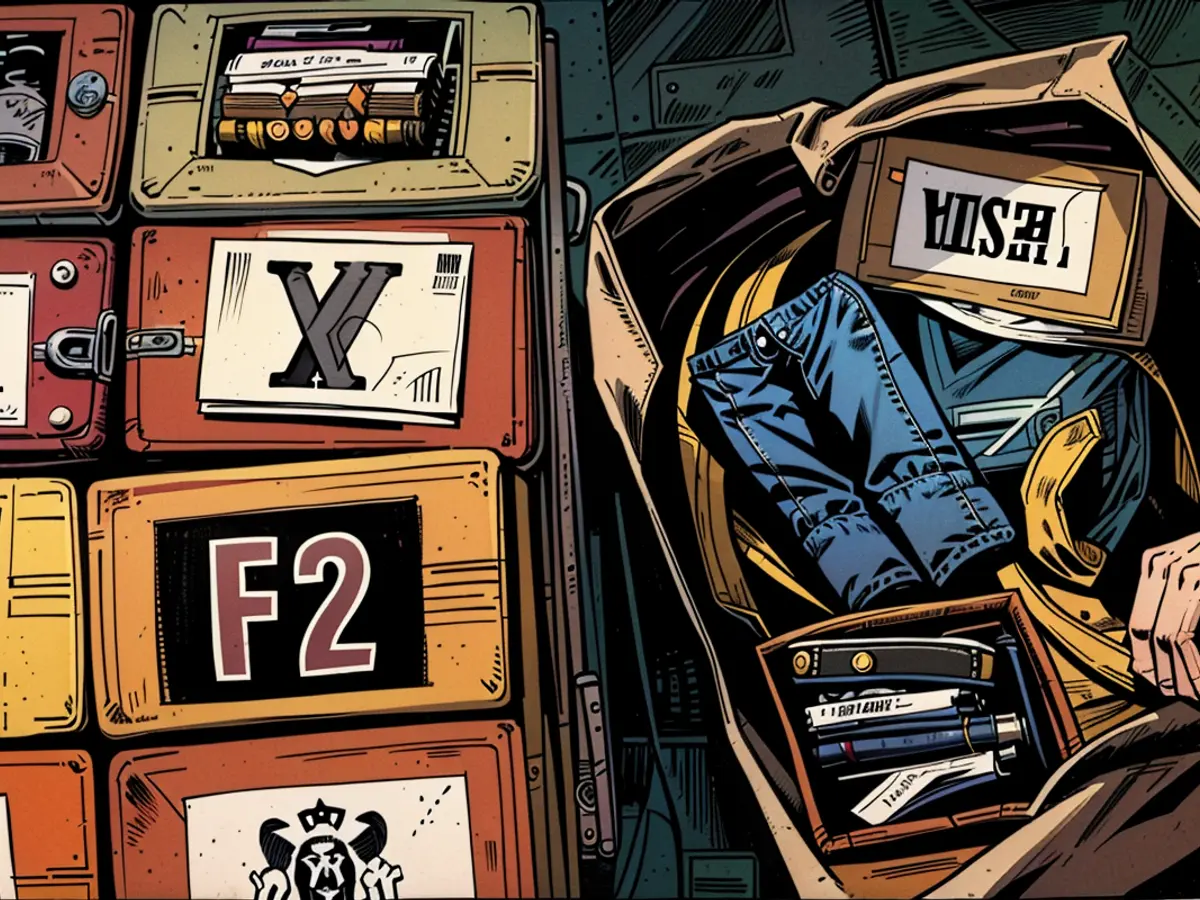BKA: Number of drug offenses on the rise - new high for cocaine
The police reported an increase of six percent in drug deals and a one percent increase in consumption-related crimes. The increase was particularly noticeable in connection with cocaine, it was further stated. The number of cocaine-related crimes had increased by 27.4 percent in 2023 - a new record high.
Approximately 43 tonnes of cocaine were seized in Germany in the previous year, more than double the amount of 20 tonnes the year before. The perpetrator groups were increasingly willing to pay large bribes or use massive violence against competing gangs or their own members, the Federal Criminal Police Office (BKA) added.
About two-thirds of all drug crimes were related to cannabis. Synthetic drugs continued to play an important role. In the Netherlands, a large amount of amphetamine and Ecstasy is produced. In Germany, according to the information available, almost two tonnes of amphetamine, over 1.1 million Ecstasy tablets, and over 450 kilograms of methamphetamine were seized.
14 drug laboratories were discovered in Germany, including for the first time a laboratory for the production of new psychoactive substances and two large laboratories for the production of amphetamine.
Drug trading over the internet is firmly established. The worldwide as well as the German supply offers reached a record level from the end of 2022 to mid-June 2023. However, the shutdown of various marketplaces then led to the number falling back to a stable level by the end of 2023.
Drugs are increasingly being traded via messaging services, it was stated. The drug trade in social networks has also become established. Young adults and adolescents were encountering professional drug offers without actively seeking them out.
2227 drug-related deaths were recorded in Germany in the previous year. This was an increase of 11.9 percent compared to the previous year, the BKA reported. Among the drug-related deaths were 1844 men and 383 women. Their average age was 41 years. The number of drug-related deaths has been increasing steadily since 2017, according to the BKA.
"European North Sea ports have become important entry points for the import of drugs into Europe," explained BKA Vice President Martina Link. "The increasing violence escalation, especially in the Netherlands and Belgium, shows us the various dangers this poses for the state and society."
Federal Minister of the Interior Nancy Faeser (SPD) stated regarding the record amounts of seized cocaine: "The high pressure of investigation is working." The fight against drug cartels will continue, she announced, "in intensive international cooperation in Europe and with South American countries."
In the Encrochat proceedings, more than 1700 arrest warrants were executed. "The resolved communication of criminals has given us deep insights into the structures," Faeser explained. It is about finding the instigators, discovering financial streams, and dismantling criminal networks. "At the same time, we must make our ports safer, so they can no longer be major entry points for tonnes of cocaine."
- The number of drug offense cases related to cocaine has reached the highest level, increasing by 27.4 percent in 2023.
- In Germany, the police seized more cocaine than ever before, with approximately 43 tonnes in the previous year.
- Perpetrator groups involved in drug offenses are willing to pay large bribes or use massive violence against rivals.
- Approximately two-thirds of all drug crimes in Germany are related to cannabis, while synthetic drugs play an important role.
- A new psychoactive substance production laboratory, as well as two large amphetamine production laboratories, were discovered in Germany.
- Drug trading over the internet and messaging services has become prevalent, with young adults and adolescents encountering professional drug offers.
- Germany reported 2227 drug-related deaths in the previous year, an increase of 11.9 percent compared to the previous year, with an average age of 41 years.
- European North Sea ports have become crucial entry points for drugs into Europe, according to BKA Vice President Martina Link, leading to increased violence in the Netherlands and Belgium.







